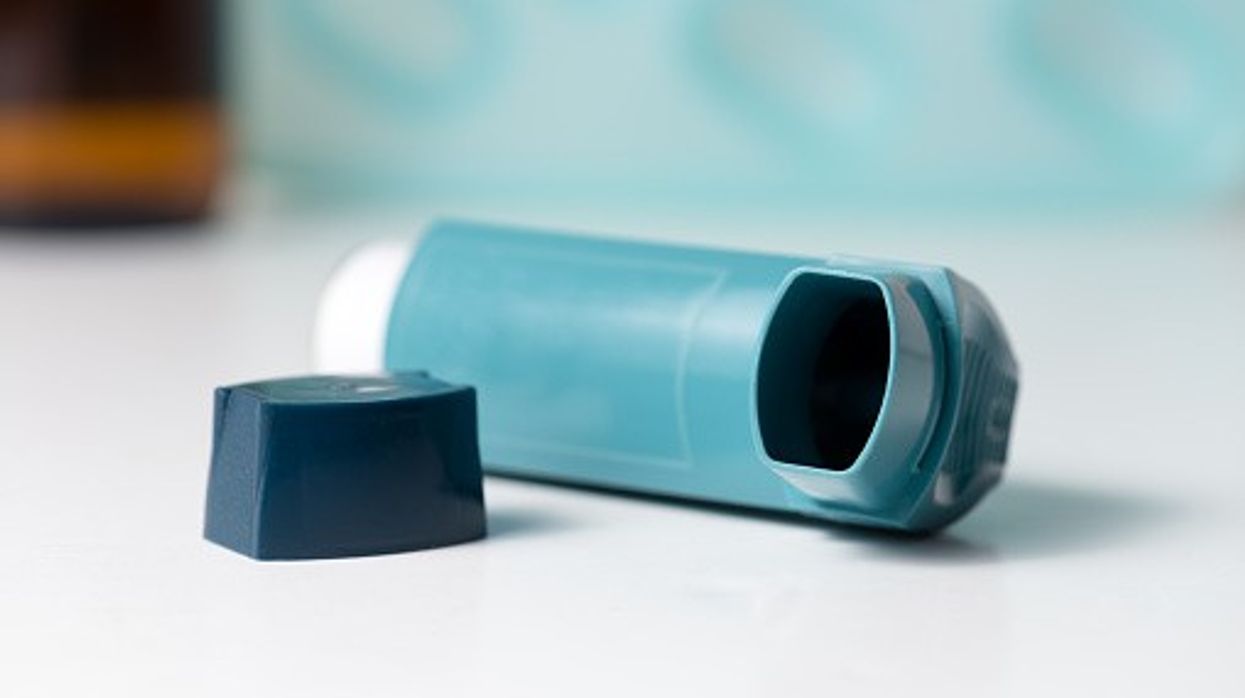Medicines contribute around 25% of NHS emissions, with inhalers making up 3% of this total
NHS England has updated its ‘Green plan guidance’, outlining key actions for Integrated Care Boards (ICBs) and trusts to help achieve net zero carbon emissions.
Among the recommended measures to reduce emissions from the medicines supply chain, organisations are asked to encourage patients to return used or expired inhalers to community pharmacies for appropriate disposal.
Medicines account for approximately 25 per cent of NHS emissions, with a small number of medications contributing a large portion of this. For example, anaesthetic gases account for 2 per cent of NHS emissions, while inhalers contribute 3 per cent.
The updated guidance says that organisations should build on ongoing progress in reducing these “point of use” emissions, while improving patient care and reducing waste.
To address emissions from the medicines supply chain, the guidance recommends:
- Supporting high-quality, lower-carbon respiratory care
- Optimising inhaler choice by considering clinical appropriateness, the environmental impact of inhalers and patient preference
- Improving inhaler use and adherence
- Promoting the appropriate disposal of inhalers
- Addressing overprescribing and oversupply while ensuring support for patients in greatest need
Tase Oputu, chair of the Royal Pharmaceutical Society’s English Pharmacy Board, said that pharmacy teams are well-placed to support these efforts.
She noted that encouraging patients to return used inhalers will help “reduce waste, create opportunities to support patients with inhaler technique and reduce unnecessary prescribing.”
According to the guidance, the Greener NHS Dashboard will introduce a new metric in the first quarter of 2025/2026 to track NHS sustainability progress related to the reporting of average inhaler emissions per 1,000 patients.
Oputu said that this new metric will help track the environmental impact of respiratory medicines and drive a shift towards lower-carbon treatments.
She also confirmed to the Pharmaceutical Journal that the RPS will launch its ‘Greener Pharmacy Toolkit’ this year to support pharmacy teams embed sustainable practices, including carbon calculators to measure and reduce their environmental footprint across medicines supply, use and disposal.
“By working together, we can reduce emissions, reduce medicines waste and improve healthcare sustainability,” she added.
Actions to be taken by trusts and ICBs
As part of the emissions reduction strategy, organisations are encouraged to the benefits of digital transformation by reducing the use of paper and providing virtual pathways where clinically appropriate.
The new guidance also recommended actions on improving energy efficiency such as:
- Installing LED lighting, insulation and double-glazed windows.
- Replacing fossil fuel heating systems with lower carbon alternatives, such as heat pumps or connecting to a heat network system
- Increasing use of renewable energy by investing in on- or near-site renewable energy generation to meet NHS energy demand
Trusts and ICBs must refresh their green plans for the next three-year cycle in line with this guidance and submit them to NHS England by 31 July 2025.
NHS net zero commitment
In 2020, the NHS became the world’s first health system to commit to reaching net zero emissions.
Since 2021, NHS England has required systems and trusts to develop green plans spanning three years. Progress made so far includes:
- Over £1 billion investment secured through the Public Sector Decarbonisation Scheme (PSDS), which is expected to reduce NHS energy costs by over £260 million a year.
- £40 million investment in LED lighting via the NHS Energy Efficiency Fund, with an additional £75 million available for 2024/25.
Additional initiatives such as the Public Sector Low Carbon Skills Fund, Workplace Charging Scheme, and Boiler Upgrade Scheme to support green heating installations in smaller properties such as primary care practices.



















